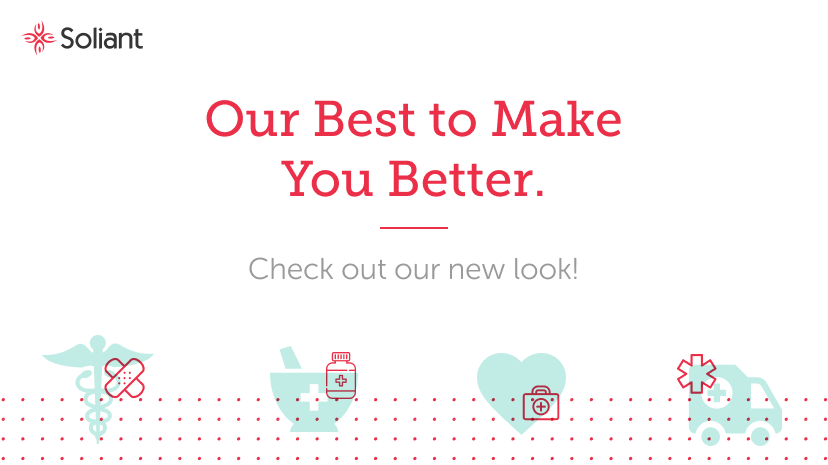
At Soliant, we’ve spent the last 25 years making lives better. Having evolved through our proverbial childhood and adolescence, we have finally achieved adulthood. It’s time our online presence reflected the wisdom and now well-defined personality that that growth entails.
Like the noble phoenix rising from the ashes, a beautiful butterfly emerging from its chrysalis, or the nerd character in an ‘80s teen movie getting a makeover at the mall, Soliant too must transform anew as our next phase dawns. We redesigned our website in order to offer a cleaner, more seamless online experience for you and all our clients that reflects the genial, service-oriented culture that we are so proud to have spent the last quarter of a century building. Welcome to the new and improved soliant.com!
We continually strive to accommodate our clients with a personal touch so as to make their experiences with us as easy and comfortable as possible. Now, soliant.com offers the same level of service. The redesign features improved navigability, including straightforward, easy-to-access search and browsing functions, as well as full mobile-friendly functionality, so you can search for jobs and get industry updates anytime and on the go. It also boasts a warm, bright new look that reflects the friendly, welcoming environment we have worked hard to cultivate over the years.
We couldn’t be more excited about the revamped soliant.com – not just because it looks pretty (although it sure does, if we do say so ourselves). But mostly because we are confident that it will help us connect skilled clinicians with crucial job openings more efficiently and effectively. So please, take a few minutes to browse around, gawk at the shiny new graphics, and bask in the intuitive usability. Once you’re ready to get back to making a difference in your patients’ lives, we’ll be better equipped than ever to support you.
 When patients are diagnosed with a condition that requires extensive or long-term treatment, going the “take two of these and call me in the morning” route might seem the simplest way to go, but it can be detrimental to their personal outcome. Patient education is a very important part of the diagnostic and treatment process that should not be overlooked or glazed over. In fact, some hospitals and practices employ patient educators whose specific job it is to work with patients to improve their understanding. Those who have a better understanding of their condition, how it can affect them, things they can do to improve their own outcome, and the why and how of their diagnosis and prognosis are better patients and will have a better outcome and outlook as they go through treatment.
When patients are diagnosed with a condition that requires extensive or long-term treatment, going the “take two of these and call me in the morning” route might seem the simplest way to go, but it can be detrimental to their personal outcome. Patient education is a very important part of the diagnostic and treatment process that should not be overlooked or glazed over. In fact, some hospitals and practices employ patient educators whose specific job it is to work with patients to improve their understanding. Those who have a better understanding of their condition, how it can affect them, things they can do to improve their own outcome, and the why and how of their diagnosis and prognosis are better patients and will have a better outcome and outlook as they go through treatment.  We live in an age where, no matter your gender, race, or religion, you are able to go into any profession you wish. Unfortunately, we also live in a world where there is a large amount of stereotyping and discrimination still taking place. While legally you may be able to take on any role that you would like, there are those who may hold personal beliefs that you are not qualified for your job due to the color of your skin, your age, or other factors. What are you to do when faced with a patient or even a colleague who distrusts you or refuses your service because you or your staff members don’t fit their personal ideal for a doctor or nurse?
We live in an age where, no matter your gender, race, or religion, you are able to go into any profession you wish. Unfortunately, we also live in a world where there is a large amount of stereotyping and discrimination still taking place. While legally you may be able to take on any role that you would like, there are those who may hold personal beliefs that you are not qualified for your job due to the color of your skin, your age, or other factors. What are you to do when faced with a patient or even a colleague who distrusts you or refuses your service because you or your staff members don’t fit their personal ideal for a doctor or nurse?